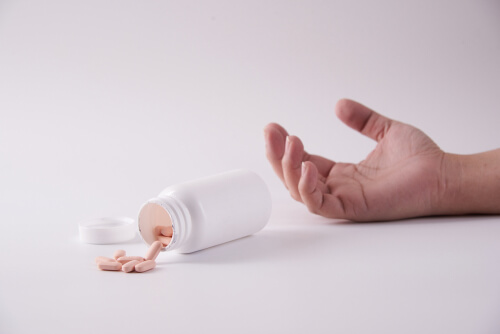Will Continually Using Sleeping Aids Kill Me
A sleeping pill overdose occurs when a person takes too many hypnotics at once or when the drug is taken simultaneously with alcohol. This can result in an accidental death by sleeping pill overdose, but unfortunately, some are intentional suicides. In the case of serious depression, a person might overdose sleeping pills or mix them with alcohol or other drugs.
Learn About Sleeping Pills:
- What Are The Sleeping Pill Overdose Symptoms?
- How Much Sleeping Pill Is Too Much?
- Can Sleeping Pill Overdose Be Lethal?
- What Are The Complications Of Sleeping Pill Overdose?
- Which Are The Risk Groups?
- Is Sleeping Pills Overdose Used As A Suicide Method?
- How Is Sleeping Pill Overdose Treated?
- What To Do If Someone Overdoses On The Sleeping Pill?

Sleeping Pill Overdose Symptoms
Overdosing on sleeping pills can lead to serious side effects, varying from abdominal pain, breathing issues and excessive lethargy to self-induced injuries, driving and causing accidents and other actions happening without the individual's awareness and without remembering anything.
Here are some indicators of hypnotics overdose:
- Abdominal pain, loss of appetite, constipation.
- Dysfunctional or slow breathing, leading to the cessation of breathing and loss of consciousness.
- Impaired memory
- Inability to focus
- Difficulty with coordination
- Slurred speech
- Memory loss
- Dizziness
- Excessive lethargy
- Extreme confusion
How Much Sleeping Pill Is Too Much
Still, there are individual dangerous misuses which can have life-threatening consequences. It all depends on the drug and the sleeping pills overdose amount.
How to overdose on sleeping pills? For example, the usual recommended dose for Ambien is 10 mg. When taking 600 mg, the person is entering the overdose limitations, and serious damages might occur. Death by sleeping pill is possible at doses higher than 2000 mg.
For Lunesta, an overdose takes place at 270 mg, which is 90 times the recommended dose. A fatal sleeping pills overdose can only occur when the drug is mixed with alcohol or benzodiazepines.
For Sonata, it takes 200 mg to overdose, with no risk of death if alcohol is not involved.
Note that taking more pills than prescribed or using them without prescription is an abuse and can result both in overdose and legal consequences.
Lethal Sleeping Pill Overdose
Overdose on sleeping pills is dangerous but does not always lead to death. The majority of hypnotics that were as dangerous are no longer on the market.
The pills that are currently on the market have in their composition milder compounds which are not potentially lethal. Manufacturers claim that these modern hypnotics are made to be safer, by making them less potent, therefore ensuring that overdose sleeping pills is not an effective method for suicide anymore.
Although newer soporific drugs are less potent, they are still not 100% safe. They are still a threat, and doses of 2000 mg (200 tablets) can be lethal.

Complications Of Sleeping Pill Overdose
Very few patients ask themselves how sleeping pills work, therefore being very easy to overdose accidentally. A hypnotics overdose can cause serious problems. Some of the side effects of sleeping pills overdose are brain injury due to lack of oxygen caused by depressed breathing, memory loss, facial paralysis, paranoid delusions, little or no control over bodily functions or development of psychological disorders.
Even doses as low as 70 mg (7 to 14 times higher than the usual dose of 5-10 mg) can cause damages to the body in some persons. The physical injury and brain damage can leave a person with painful side effects for life.
Risk Groups
There are some situations where hypnotics overdose can take place unintentionally.
- Mixing sleeping pills and alcohol can potentiate the effects of the drug and in combination with the sedative effects of alcohol can result in breathing cessation and even death.
- Grapefruit increases the amount of soporific drug, which is absorbed into the bloodstream and extends its effects, causing over-sedation and unintentional overdosing on sleeping pills.
- Combining prescription medications is very dangerous, especially mixing hypnotics and opiate painkillers. Both mental and physical effects are magnified, leading to overdose symptoms such as inability to focus, confusion, slowed heart rate and breathing, vomiting, nausea, and loss of coordination.
- An allergic reaction to prescribed hypnotics can be a serious life threat. Soporific drugs might interfere with the ability to breathe in someone who has asthma, COPD, emphysema, or other chronic lung problems, effects similar to an overdose on sleeping pills.
- Although over the counter hypnotics doxylamine and diphenhydramine are safe in pregnancy at the recommended dosage, there are some risks, especially in the first and third trimester and if combined with other drugs. Taking sleeping pills while pregnant in combination with Restoril (temazepam) can cause stillbirth.
Sleeping Pills Overdose Suicide
Because a hypnotics overdose usually has a tranquilizing effect, leading to a possible painless death, suicide by sleeping pills is one of the choices.
Diphenhydramine, a common substance used in hypnotics, is deemed to have caused an increased number of suicides. A study made over 13 years in Berlin, showed that 55 fatal diphenhydramine poisonings took place with a large number of those being attempted suicides.
Historically, this substance has been the most used OTC medication all over the world for intentional overdose. In 1997, in England and Wales, diphenhydramine suicide accounted for 200 deaths.
If someone is thinking about commiting suicide, taking sleeping pills is not a way. Call to free suicide prevention hotlines and ask for help. Speaking to a caring psychologist confidentially may help to find a way out.

Sleeping Pill Overdose Treatment
Sleeping pill overdose is treated with Flumazenil if the individual does not develop seizure symptoms. This drug reverses the sedation caused by hypnotics, bringing the patient back to a normal state.
If a large quantity of soporific drugs has been ingested, the pills will be removed from the stomach with a pump. The patient will be closely monitored over the next hours or days, depending on the severity, to assess the recovery and progress.
What To Do If Someone Overdoses On Sleeping Pill
If an individual thinks that someone has taken a sleeping pill overdose, they should call an ambulance immediately.
When the ambulance arrives, show them any empty packets or bottles of pills that the victim might have taken.
While waiting for the paramedics turn the person in the coma position, with the body face down, the head turned one side and one knee slightly bent. Check if the airway is clear and if the person is breathing. Also, check for a pulse in the wrist and neck. Check for both pulse and breathing regularly while waiting for the ambulance.
If there is no pulse in the neck, one can embark on CPR. Turn the person on the back and before doing CPR, call the ambulance and tell them the victim is in cardiac arrest, so they know what to take from the ambulance.
Addiction And Getting Help
Using hypnotics for a long period or misusing them, increases the risk for developing an addiction. If addiction has installed, the person might have cravings, be unable to fall asleep without them, taking hypnotics despite the adverse side effects or needing increased doses. There are numerous drug treatment facilities with special treatment programs for hypnotics addicts.
It is dangerous to quit hypnotics at once, but with a detoxification treatment with the right clinical care and medical treatment, the individual can safely get rid of the addiction. Depending on how severe the addiction is, the person might need medical detox for a safe and comfortable withdrawal process. With the right treatment for substance abusers, any hypnotics addicted can return to a healthy life.
Page Sources
- Drugs Most Frequently Involved in Drug Overdose Deaths: United States, 2011–2016. Holly Hedegaard, M.D., M.S.P.H., and Brigham A. Bastian, B.S., National Center for Health Statistics; James P. Trinidad, M.P.H., M.S., U.S. Food and Drug Administration; Merianne Spencer, M.P.H., and Margaret Warner, Ph.D., National Center for Health Statistics . National VitalStatistics Reports. Vol 67. 2018. https://www.cdc.gov/nchs/data/nvsr/nvsr67/nvsr67_09-508.pdf
Source: https://addictionresource.com/drugs/sleeping-pills/overdose/
0 Response to "Will Continually Using Sleeping Aids Kill Me"
Post a Comment